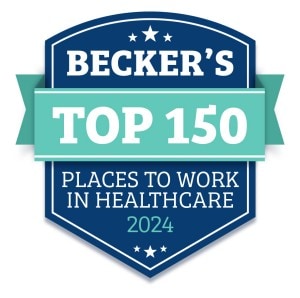Our Program

The Tidelands Health MUSC Family Medicine Residency Program is an innovative, community-based unopposed residency program with eight residents each year.
We offer broad spectrum instruction and clinical opportunity in family medicine. You will hone your practitioner skills in a variety of clinical settings across a multigenerational spectrum of patients. And as you learn, you will have all the resources of an academic center within a vibrant coastal community.
Built into our curriculum is comprehensive training in leadership skills that can help you become a transformational health care leader. We also have valuable instruction to help you learn an appropriate work-life balance -- so you will remember to take care of yourself as you take care of others.
As you are learning what you need to become a trusted family medicine physician, you will be gaining important additional skills that will serve you well during your medical career.
Nationally Recognized Residency Program
Tidelands Health was one of three finalists from more than 850 ACGME-accredited sponsoring institutions for the 2023 DeWitt C. Baldwin Jr. Award recognizing institutions in fostering a respectful, supportive environment for medical education and the delivery of patient care.
Your Residency Partners
Tidelands Health is the largest health care provider in the Tidelands region of South Carolina. Our not-for-profit health system includes four hospitals – two acute-care hospitals and two inpatient rehabilitation hospitals – as well as more than 70 outpatient locations. Here, we serve a diverse population. Our hospitals have an average daily census of 150 patients, and our Tidelands Community Care Network provides the Tidelands region with a much-needed health care safety net for the uninsured and underinsured. All of these parts of the organization are participating training sites, and some rotations are offered at the Medical University of South Carolina in nearby Charleston.
Tidelands Health's unique collaboration with MUSC will enable us to recruit and educate aspiring physicians for years to come, with the ultimate goal of retaining physicians to serve our local and regional communities and enhance our patient care services.
Wellness - You Receive Care, Too
We want to make sure our residents are cared for while learning to care for others. Our family medicine residency program includes Building Resilience, our resident wellness program focused on the body and the mind. We work with our residents to make sure you are maintaining a good work-life balance that includes proper sleep, manageable stress levels and time for yourself.
Residents in our program receive a complimentary membership to the health system’s health and fitness center – Tidelands Health Pawleys Family YMCA. We want to help you meet the demands of residency without burning the candle at both ends.
Learn more about Building Resilience
Transformational Leadership
In the rapidly changing world of health care, every physician should have a good understanding of the leadership skills required to run an effective practice or in any leadership capacity throughout your career.
Unlike many other programs, our residency program has a three-year focus on leadership training. Residents will learn the ins and outs of how a health system functions through project-based learning in:
- Lean operation and the Six Sigma model of operational improvement
- The patient experience
- Leadership skills
Our Commitment
Our commitment is to provide educational programs to address:
Patient Safety
We provide opportunities for our residents to participate in interprofessional teams that promote and enhance safe care in a community hospital setting.
Continuous Quality Improvement
We will use data to improve patient outcomes, reduce health care disparities and enhance systems of care.
Leadership Development and Professionalism
Physician training is a lifelong skill improvement process. Our program aims to develop and empower resident physicians to see themselves as healers and as the next generation of health care leaders. The goal is to develop a generation of physicians who are patient-centered, community health advocates and leaders in continuing the evolution of health care.
Learning Environment
Tidelands Health commits to creating, supporting and facilitating a positive and productive learning environment for residents, staff, patients, learners and teachers. This environment will support learning innovation, growth, respect, collegiality, kindness and cooperation among health care team members, while supporting diversity and inclusion, professionalism and the habit of lifelong learning.
We will provide graduate education programs that will enable physicians to develop personal, clinical and professional competence under the guidance and supervision of the faculty and staff. The program faculty will help ensure patients receive safe, appropriate and humane care by resident physicians. Resident physicians will gradually assume responsibilities for patient care based on each trainee’s demonstrated clinical competence. We further commit to conduct these programs in compliance with the institutional and specific requirements of the ACGME, the Joint Commission and in accordance with all applicable federal and state laws and regulation.
Program Goals
At the end of the program, residents will be able to:
-
Work collaboratively and effectively in a multidisciplinary team environment caring for patients in a patient-centered medical home model across a spectrum of settings.
-
Competently and cost effectively provide comprehensive care for a broad range of medical conditions to a diverse group of patients in a culturally sensitive manner.
-
Understand the tools of disease management, systems-based care and population health to more effectively care for people with chronic illnesses and to apply preventive health strategies.
-
Be effective communicators with the team, families and patients.
-
Provide effective and direct end-of-life counseling to patients and families.
-
Understand patient decision-making and patient satisfaction drivers.
-
Understand and utilize the principles of quality improvement and systems thinking to reduce variation and the utilization of data to improve performance.
-
Possess broad leadership skills to foster community engagement, civic responsibility and serve as community-based health system leaders.